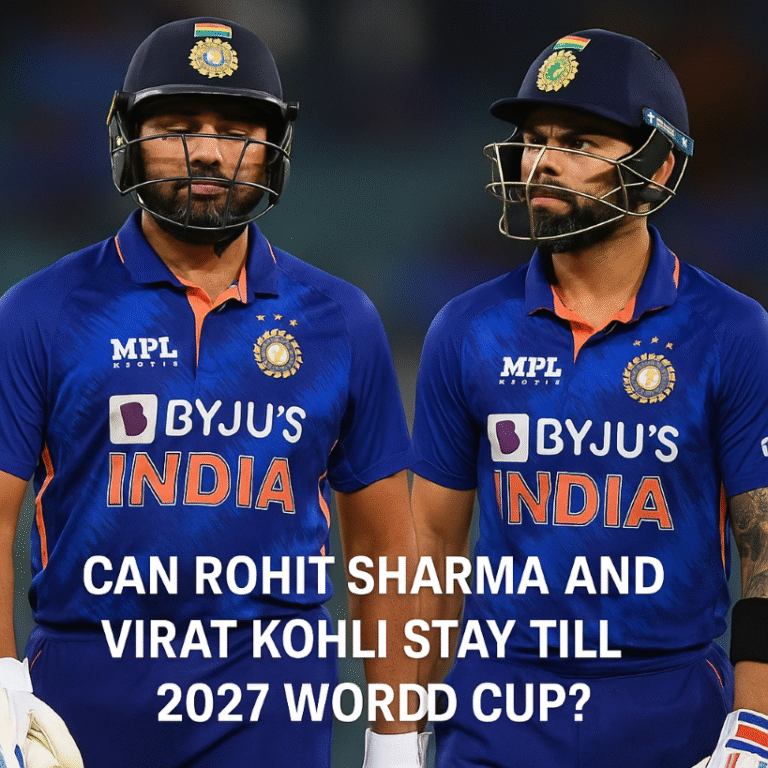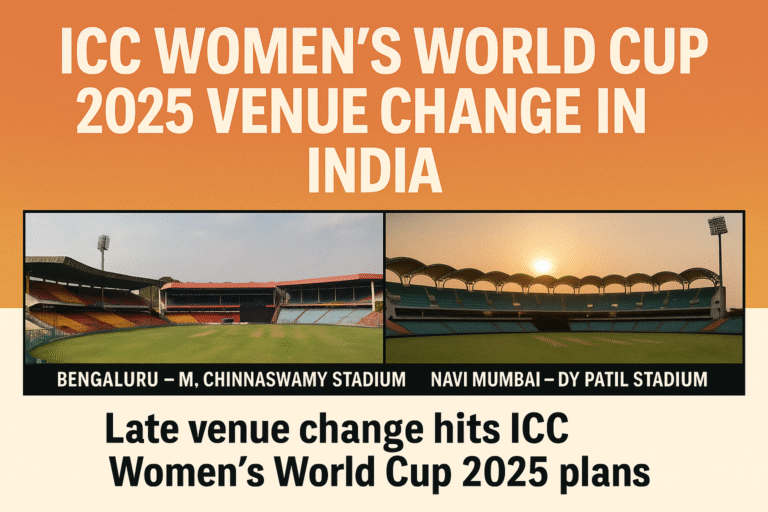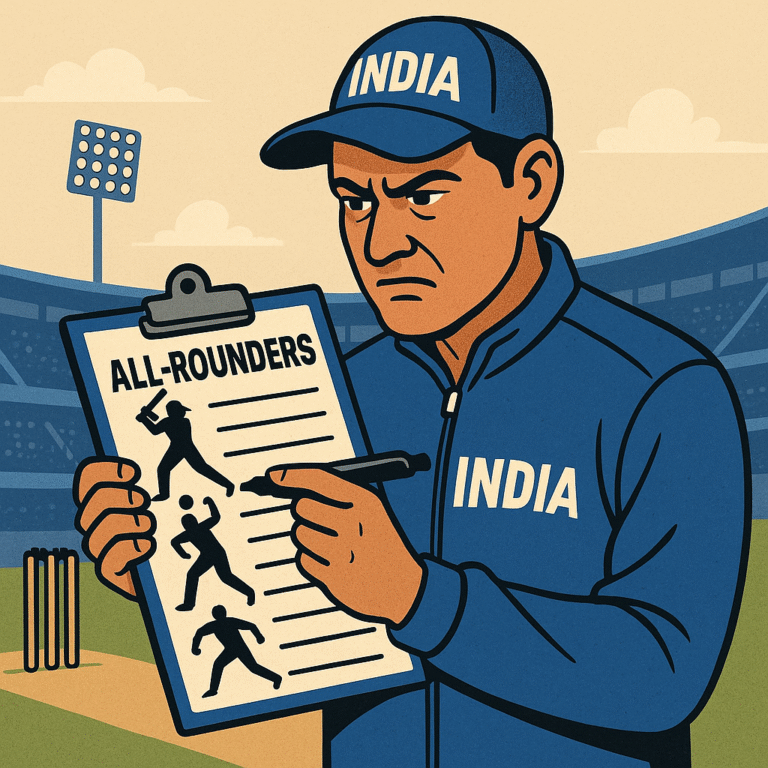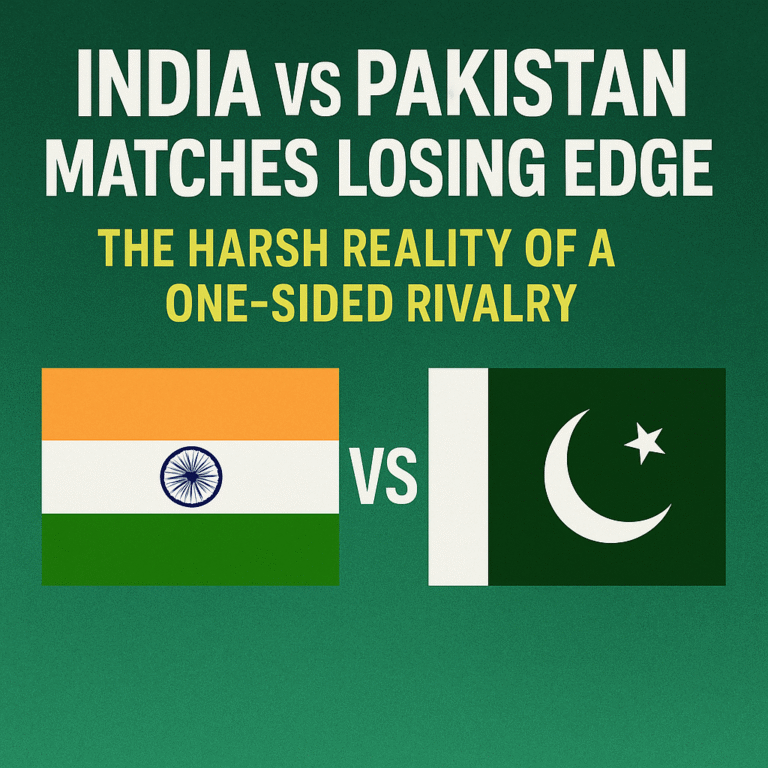India vs Pakistan Asia Cup Match Backlash and Politics in Cricket
India vs Pakistan Asia Cup match backlash and politics in cricket is once again dominating headlines, stirring debate not just among cricket lovers but also among political observers. Whenever these two nations meet on the cricket field, the match becomes far more than just a sporting contest. It turns into a high-stakes event loaded with history, politics, and emotions. The latest fixture is no different, sparking backlash, questions about the timing, and discussions on whether cricket should continue to be a tool of diplomacy when cross-border tensions remain unresolved.
Why there is so much tension about this fixture
The India Pakistan cricket rivalry is unlike any other in world sport. The shared history, multiple wars, and continuing disputes have made every game between these two nations a battle of pride. The tension goes beyond the players and extends into the stands, the media, and even political corridors. For many Indians, playing Pakistan in cricket feels like indirectly normalizing relations despite hostile actions across the border. For Pakistan, these matches are a way to prove parity on the global stage and to keep their cricket relevant. The tension is so deep that even the announcement of a fixture sparks debates on boycotts and diplomatic statements.
The shadow of Pahalgam and recent history
Recent events in Pahalgam have reignited the anger and emotions surrounding this cricket clash. The loss of lives in terror incidents linked to cross-border terrorism left the Indian public grieving and questioning whether it is ethical to share a cricket field with a country accused of sheltering and supporting such activities. While the memories of Pahalgam are fresh, the announcement of the India Pakistan Asia Cup match has been perceived as insensitive by many. Critics argue that such fixtures send mixed signals, especially when the Indian government and armed forces are engaged in securing the borders and protecting citizens.
Cricket and terrorism cannot go hand in hand
One of the strongest arguments in the current debate is that cricket and terrorism cannot go hand in hand. On one side, cricket is celebrated as a gentleman’s game meant to unite fans across boundaries. On the other side, terrorism continues to inflict pain and suffering on families and communities. When terror incidents are still fresh, the idea of celebrating a cricket match against Pakistan appears contradictory. This argument has gained momentum especially among families of those affected by terror incidents who believe that sports diplomacy should not come at the cost of national security or public sentiment.
Monetary benefits and who needs the match more
There is no denying that the India Pakistan fixture is the most commercially valuable match in the Asia Cup. Broadcasters expect record-breaking viewership numbers whenever these two teams clash. Sponsorships skyrocket, ticket prices climb, and media rights are sold at premium rates. For Pakistan, this match is a major financial boost. Pakistan Cricket Board relies heavily on such fixtures to keep its balance sheets healthy. Without India in the tournament, the commercial value of the Asia Cup dips dramatically.
In comparison, India has a much larger cricket economy. The Board of Control for Cricket in India (BCCI) earns huge sums from the Indian Premier League and other bilateral series. While the India Pakistan match is valuable for Indian broadcasters and advertisers, India does not rely on it for survival. This raises the question of who needs the match more. Clearly, Pakistan benefits disproportionately from the monetary side of this fixture while India could walk away without any major dent in its finances.
Asia Cup and the focus on India Pakistan rivalry
The Asia Cup was designed as a platform to showcase cricketing talent from across Asia and to build a sense of regional competition. However, in reality the tournament is often reduced to one big match between India and Pakistan. The hype, the ticket sales, and the media promotions all revolve around this single contest. The other matches, involving Sri Lanka, Bangladesh, Afghanistan, or Nepal, often feel lackluster in terms of audience interest, similar to what we saw in India’s Fastest Run Chase in Asia Cup vs UAE, where excitement was high for the record but overall interest in the fixture was limited. Fans tune in for the India Pakistan clash and disengage soon after. This over-reliance on one match has made the Asia Cup less about promoting Asian cricket and more about monetizing the biggest rivalry in the sport.
Should India vs Pakistan Asia Cup match backlash lead to a boycott
The big question remains whether India should boycott this match. On one hand, skipping the fixture would send a strong message that terrorism and sports cannot be separated when lives are lost in incidents like Pahalgam. On the other hand, cricket purists argue that sport should remain outside the political realm and be treated as an independent bridge between nations. What must be remembered is that cricket would go on regardless. Boycotting this one match would not be the end of cricket. The Asia Cup would still continue and fans would still have plenty of cricket to watch. If the intention is to make a political and moral statement, skipping this match is a symbolic but significant move that does not kill the spirit of the sport.
Cricket diplomacy versus public sentiment
Historically, cricket has been used as a diplomatic tool between India and Pakistan. Matches in the past have led to people-to-people engagement and moments of goodwill. However, today the public sentiment in India is far less forgiving. Fans are vocal on social media platforms, demanding boycotts and questioning why sports should be separated from terrorism. Politicians are also under pressure not to appear soft on Pakistan. This growing gap between the idea of cricket diplomacy and actual public emotion creates an almost impossible situation for the cricket boards to manage. While Pakistan pushes for the fixture to keep cricket alive in the country, Indian fans increasingly view such matches as an unnecessary compromise.
What the future holds
Looking ahead, the India Pakistan cricket rivalry will always remain a complex issue. It is not just about bat and ball but about national pride, politics, and emotions. Each fixture will continue to spark debates on whether it should go ahead or not. The commercial value ensures that broadcasters and boards will push for it, but the political context will always dictate the final decision. The backlash this time, fueled by the Pahalgam incident and growing resentment, has made it clear that playing Pakistan is not merely a sporting decision but a national choice.
Conclusion
India vs Pakistan Asia Cup match backlash and politics in cricket is not a new story but it is one that refuses to fade away. Every match between the two nations becomes a question of conscience, diplomacy, and dollars. For Pakistan, the fixture is a lifeline that brings financial relief and international relevance. For India, it is an optional contest that adds spice to the calendar but is not essential for cricket’s survival. With terror incidents casting long shadows and public sentiment running high, it is worth questioning if the time has come to send a bold message. Cricket will always continue, but boycotting one match will not harm the game. Instead, it might finally underline the idea that cricket and terrorism cannot be played on the same field.







One Comment